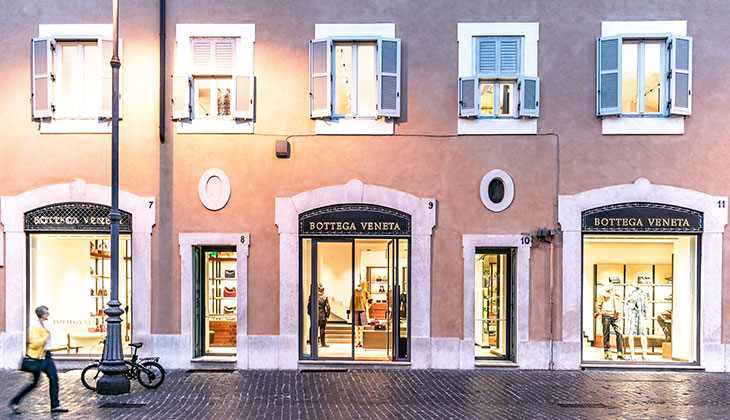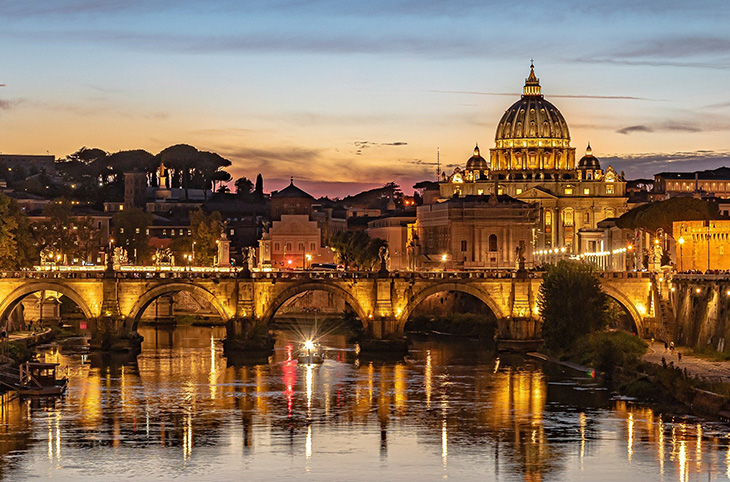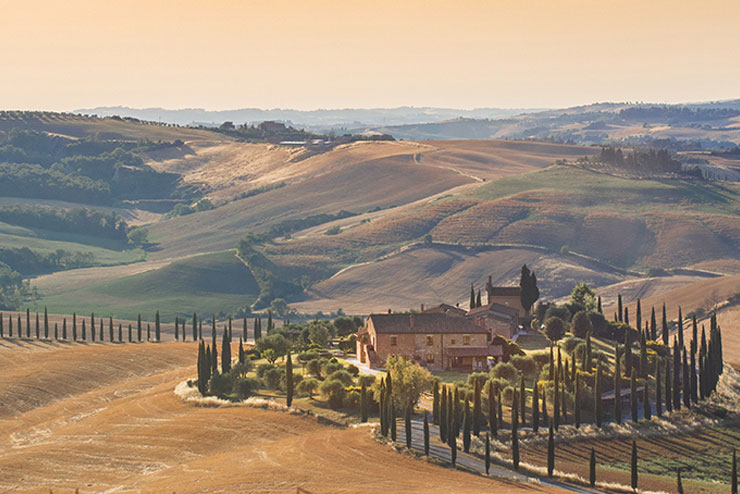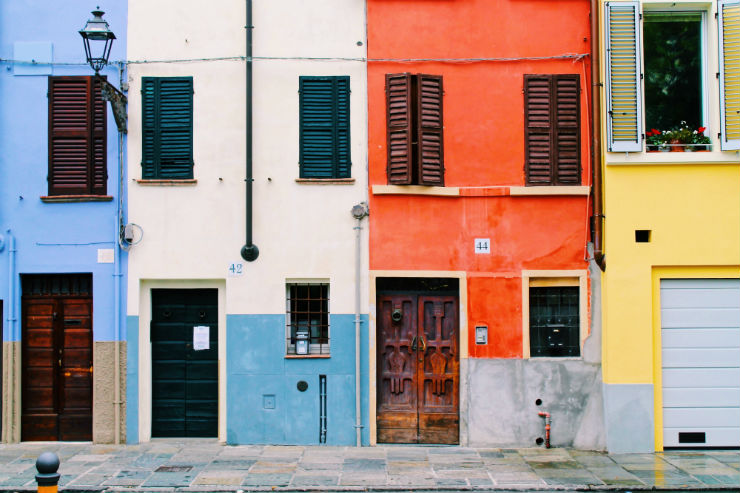Essere conjugation – Extremely useful
One of the very first steps when learning Italian is to learn the conjugation of Essere.
Essere is the most common verb in Italian. It literally means to be, to exist and you will basically need it to say everything in Italian, like:
- sono americano – I’m American
- sono felice – I’m happy
- sono stato in Italia – I’ve been in Italy
So, what are you waiting for? You need to learn this verb right now! Here below you will find tables with all Essere Conjugations with examples. And in the last paragraph you will also learn more ways to use it.
Let’s start with the tenses of the Indicative mood.
Essere Conjugation – Presente
First thing to know is that Essere follows an irregular conjugation, meaning that you can’t apply the rules of regular verbs when conjugating it, but you need to learn it by heart:
| Io sono | I am |
| Tu sei | You are |
| Lui / Lei è | He / She is |
| Noi siamo | We are |
| Voi siete | You are |
| Essi sono | They are |
Sono molto stanca. – I am very tired. Same as in English, Italians use the present tense to express habits, general rules, or actions that are happening right now.
Lui è a Parigi? – Is he in Paris?
Siete a casa. – You are at home.
Usually it’s not necessary to use the pronouns (io, tu, lui, lei, noi, voi, loro) before the verb in Italian. You can just use the verb without pronouns and your sentence will make sense because, as you can see from the table above, each person has its own form.
Even with sono the context always shows whether it means “I am” or “They are”:
Sono americano – I am American.
Sono americani – They are American.

Essere Conjugation – Imperfetto
| Io ero | I was |
| Tu eri | You were |
| Lui / Lei era | He / She was |
| Noi eravamo | We were |
| Voi eravate | You were |
| Essi erano | They were |
This tense is used to describe events that happened continuously in the past on a regular basis, to make descriptions in the past and to talk about feelings in the past.
Quando ero bambina andavo in Italia ogni estate. – When I was a kid, I used to go to Italy every Summer.
Eravamo molto felici quando Marco è arrivato. – We were very happy when Marco came.
Era una bella giornata, c’era il sole e non pioveva. – It was a beautiful day, it was sunny and it wasn’t raining.
Essere Conjugation – Passato Prossimo
| Io sono stato | I have been |
| Tu sei stato | You have been |
| Lui / Lei è stato/a | He / She has been |
| Noi siamo stati | We have been |
| Voi siete stati | You have been |
| Essi sono stati | They have been |
Passato Prossimo is the main past tense in Italian , you need to use it when talking about events happened in the past, when talking about what have you done this morning, yesterday, one year ago and so on.
Siamo stati benissimo insieme. – We had a great time together.
Lui è stato molto fortunato. – He was very lucky.
Sono stato in Italia l’anno scorso. – I’ve been in Italy last year.
Essere Conjugation – Futuro Semplice
| Io sarò | I will be |
| Tu sarai | You will be |
| Lui / Lei sarà | He / She will be |
| Noi saremo | We will be |
| Voi sarete | You will be |
| Essi saranno | They will be |
The future tense in Italian is used to express an action that has yet to happen. If you want to know more about it, check it out here.
Some examples:
Sarò in ritardo, potete cominciare senza di me? – I will be late, can you start without me?
Andiamo a Salerno domani? Sarà una bella giornata. – Are we going to Salerno tomorrow? It will be a beautiful day.
Un giorno saranno famosi. – One day, they will be famous.

Essere Conjugation – Passato Remoto
| Io fui | I was |
| Tu fosti | You were |
| Lui / Lei fu | He / She was |
| Noi fummo | We were |
| Voi foste | You were |
| Essi furono | They were |
Passato remoto is very often found in literature and history books. It’s used to express actions that happened a long time ago. It can be very useful to recognize it, even though you don’t need to use it, you can use passato prossimo instead.
Molti libri furono perduti durante l’incendio – Many books were lost in the fire.
Dante Alighieri fu il più importante scrittore italiano. – Dante Alighieri was the most important Italian writer.
Essere Conjugation – Trapassato Prossimo
| Io ero stato | I had been |
| Tu eri stato | You had been |
| Lui / Lei era stato/a | He / She had been |
| Noi eravamo stati | We had been |
| Voi eravate stati | You had been |
| Essi erano stati | They had been |
This tense is used to say that something happened before another event in the past. For example:
Non eravamo mai stati a Roma prima. – We had never been to Rome before.
Sono andata al supermercato anche se ci ero già stata stamattina – I went to the supermarket even though I had already been there this morning.
Essere Conjugation – Trapassato Remoto
| Io fui stato |
| Tu fosti stato |
| Lui / Lei fu stato/a |
| Noi fummo stati |
| Voi foste stati |
| Essi furono stati |
To be honest, you won’t need to use this tense, you may see it in literature or story books. It is used to talk about an event in the past that has happened before another event in the passato remoto.
Essere Conjugation – Futuro anteriore
| Io sarò stato | I will have been |
| Tu sarai stato | You will have been |
| Lui / Lei sarà stato/a | He / She will have been |
| Noi saremo stati | We will have been |
| Voi sarete stati | You will have been |
| Essi saranno stati | They will have been |
Same as futuro semplice, futuro anteriore is used to express a future action. But in this case the action happened before the futuro semplice. See the example:
Quando sarò stato in Italia almeno una volta, allora dirò di conoscerla.
When I will have been to Italy at least once, then I will say that I know it.
You could also use the futuro semplice instead.

Essere Conjugation – Condizionale Presente
| Io sarei |
| Tu saresti |
| Lui / Lei sarebbe |
| Noi saremmo |
| Voi sareste |
| Essi sarebbero |
The conditional is used to express an intention, will, or polite request. It’s used to express an action that would happen but depends on certain conditions. If you want to know more about this tense, click here.
Sarebbe bello. – It would be nice.
Se fossi un uomo ricco, sarei molto felice. – If I were a rich man, I would be very happy.
Essere Conjugation – Condizionale Passato
| Io sarei stato |
| Tu saresti stato |
| Lui / Lei sarebbe stato / a |
| Noi saremmo stati |
| Voi sareste stati |
| Essi sarebbero stati |
Sarei stato contento di vederti – I would have been happy to see you

Essere Conjugation – Congiuntivo Presente
The Subjunctive mood, or Congiuntivo in Italian, is not very used in English. It’s a mood of possibility and it is used to express uncertainty, hopes, and fears. It usually come after che.
| Che io sia | I am |
| Che tu sia | You are |
| Che lui / lei sia | He / She is |
| Che noi siamo | We are |
| Che voi siate | You are |
| Che essi siano | They are |
Examples:
Farò il mio meglio affinché tu sia contenta. – I will do my best so that you are happy.
È meglio che loro siano soddisfatti. – It’s better if they are pleased.
Penso che lui sia molto stanco. – I think he is very tired.
Essere Conjugation – Congiuntivo Imperfetto
| Che io fossi | (that) I were |
| Che tu fossi | (that) you were |
| Che lui / lei fosse | (that) he / she were |
| Che noi fossimo | (that) we were |
| Che voi foste | (that) you were |
| Che essi fossero | (that) they were |
Vorrei che tu fossi più sincera. – I wish you were more honest.We use Congiuntivo Imperfetto when the main clause has past tense, conditional tense or imperfect tense.
Speravo che questa volta non fossimo in ritardo. – I hoped that this time we wouldn’t be late.
Sarebbe meglio se lui fosse più interessante. – It would be better if he was more interesting.
Essere Conjugation – Congiuntivo Passato
| Che io sia stato | I have been |
| Che tu sia stato | You have been |
| Che lui / lei sia stato/a | He / She has been |
| Che noi siamo stati | We have been |
| Che voi siate stati | You have been |
| Che essi siano stati | They have been |
Example:
Penso che sia stato facile – I think it has been easy
Essere Conjugation – Congiuntivo Trapassato
| Che io fossi stato |
| Che tu fossi stato |
| Che lui / lei fosse stato/a |
| Che noi fossimo stati |
| Che voi foste stati |
| Che essi fossero stati |
Example:
Se tu fossi stato più attento, non saresti caduto
If you had been more careful, you would not have fallen
Essere Conjugation – Imperativo
Using this mode in Italian we can give an order or instructions. Essere has its own forms even here. More about the imperative you can learn here.
| Tu sii |
| Lui / Lei sia |
| Noi siamo |
| Voi siate |
| Essi siano |
Non ti preoccupare, sii felice – Don’t worry, be happy.
Siate prudenti! – Be careful!
Essere Conjugation – Infinito
| Present | Past |
| Essere | Essere stato |
Examples:
Essere o non essere? – to be or not to be?
Ho capito di essere stato uno sciocco – I realized I have been a fool
Essere Conjugation – Participio
| Present | Past |
| Essente | Stato |
While essente is almost obsolete, stato is used in the compound tenses of Essere, as you may have noticed from the conjugations.
Essere Conjugation – Gerundio
| Present | Past |
| Essendo | Essendo stato |
You can learn more about the gerund here.

How do you use essere in Italian?
As we already mentioned, essere means to be, to exist. We use it to express who we are, to describe our mood and how we feel.
Same as in English, we use ESSERE to:
- say our name
- describe how we feel
- talk about our profession
- describe someone or something
- describe where something is located
- ask about the time
Let’s take a look at these examples:
- Io sono Marco. – I am Marco.
- Lui è molto triste perché ha perso le chiavi. – He is very sad because he lost the keys.
- I miei genitori sono italiani, invece io sono nata negli Stati Uniti – My parents are Italian, but I was born in the US
- Mia sorella è insegnante. – My sister is a teacher.
- La ragazza di Luigi è veramente simpatica. – Luigi’s girlfriend is very nice.
- Questi libri sono nuovi e sono molto utili. – These books are new and very useful.
- Noi siamo a casa, e voi dove siete? – We are at home, and where are you?
- Il Colosseo è a Roma. – The colosseum is in Rome.
- Che ore sono? Sono le otto. – What time is it? It’s eight o’clock.
Other uses of essere
Esserci: there is – there are
With pronoun CI we use essere to indicate the presence. Same as in English “there is” or “there are”.
C’è un libro sul tavolo. – There is a book on the table.
Fammi sapere se ci sono problemi. – Let me know if there are problems.
Essere di: to be from
Di dove sei? Sono di New York.
Di dov’è tuo cugino? Lui è di Roma.
Essere as auxiliary verb
The verb essere is also an auxiliary verb. That means that, together with the verb avere, it is used to form the compound tenses (composed of the auxiliary verb + the past participle), such as passato prossimo, congiuntivo passato or futuro anteriore.
Sono arrivata ieri a Milano. – I arrived yesterday in Milano,
Quando sarà entrata nella camera, vedrà la sorpresa. – When she enters in the room, she will see the surprise.
Comparisons with English
Essere, o non essere, questo è il dilemma! – To be, or not to be, this is the problem!
A part of the essere conjugation that should be learned by heart, the use of the verb Essere seems pretty easy and almost the same as in English. However, there are exceptions to which you should pay attention to.
Do NOT use essere to say :
- the age
- how you are
- what you are doing in the moment
Let’s see what verbs to use in these situations instead.
Italians won’t say: “I am 25 years old.” They would say: “I have 25 years.” Instead of the verb essere they use the verb avere (to have).
Quanti anni hai? Ho 25 anni. – How many years do you have? I have 25 years.
If you want to ask an Italian “How are you?” you won’t use the verb essere but the verb stare. Please check out here the difference between essere and stare.
Come stai? Sto bene, grazie. – How are you? I’m good, thank you.
If you want to talk about an action that is happening right now, you won’t use the verb to be as the English expression “to be doing something“. Instead, to make the continuous form in Italian is used the verb stare.
Sto parlando al telefono. – I’m talking on the phone.
Cosa stai facendo? – What are you doing?
To conclude, if you want to practice Italian Grammar and tenses here is a list of useful books for you:




